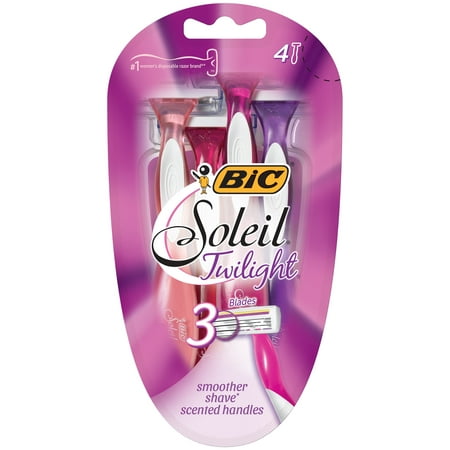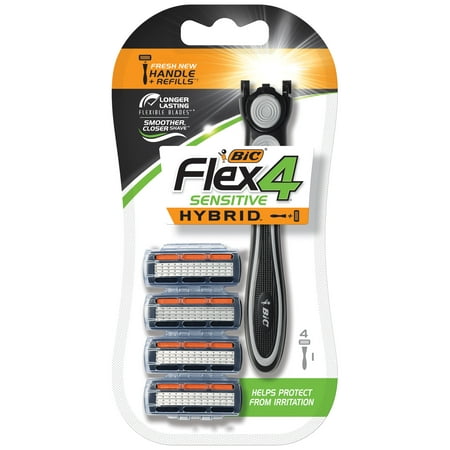Schick Hydro Silk 5 Women’s Razor Blade Refills, 4 Ct
Changing your razor blade is an important step to help maintain good hygiene and help reduce irritation while shaving, but many women routinely hop in the shower and forget to change their blade. New Schick Hydro Silk 5 Hang-In Shower Women’s Razor Blade Refills offer the convenience of easy cartridge replacements with refill blades that can be stored in the shower thanks to the waterproof packaging. Schick Hydro Silk 5 Razor Blade Refills hydrate longer* than any other razor, leaving your skin silky smooth. The Hydro Silk 5 Women’s Razor combines five curve sensing blades with a unique skin guard to smooth skin throughout every stroke, helping to reduce irritation, while providing ultimate closeness. Available in 4-count and 6-count packages.*Moisturizes up to 2 hours after shavingSchick Hydro Silk 5 Hang-In Shower Women’s Razor Blade Refills, 4 Ct:




Hydrates longer than any other razor, leaving your skin silky smooth Five (5) curve-sensing blades with unique skin guards to smooth skin throughout every stroke Water-activated Hydra-Boost serum helps replenish skin’s natural moisture for up to two hours after shaving, keeping legs nourished and smooth Refill hook that allows women to conveniently hang blades in their showers so they don’t have to get out of the shower to change a blade Waterproof packaging that protects blades until they’re ready to be used Which Hydro Silk is Right for You? REGULAR SENSITIVE Schick Hydro Silk 5 Refills feature water-activated Hydra-Boost? serum formulated with shea butter and are clinically proven to provide lasting hydration for up to 2 hours after shaving. Schick Hydro Silk 5 Sensitive Care Refills feature water-activated Hydra-Boost? serum and help to reduce irritation for silky smooth skin. Good for: Normal Skin Good for: Sensitive Skin





Reviews
There are no reviews yet.